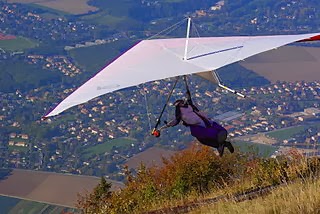As Neusner writes, we are like God when we too rest on the seventh day, on the Sabbath. To be like God we are to give over creating for enjoying and rejoicing, for resting and for prayer.
I have been thinking all day about what it would take for me to truly give over busyness and creating and working for only rest and being with creation. Would my Sabbath begin on Saturday evening and extend to sunset on Sunday? What about the joy I take in creating meals for my family on those evenings. These are the two days a week when I have time to create something out of the ordinary, to try a new recipe, to look for something that takes longer than 30 minutes to get together. What about the projects I take on with my husband around the house and yard? I work from 8:00 to 4:30 or 5:00 most days. When would the house work and gardening and laundry get done? I would need to rethink what I do and make choices about what I don't do. A long walk outside feels in keeping with the Sabbath, but working out in the gym doesn't feel like it would fit. What about a bike ride on the Chester Valley Trail. Certainly, when I am biking on the trail I am enjoying the outdoors and being with my neighbors who have come outside. Of course Meeting for Worship makes sense, but what about reflecting and writing those reflections down? Driving out to pick up a gallon of milk might seem a stretch, but what about stopping in the library or Chester County Book Company to find another book to read and enjoy? What if it were another book by Jacob Neusner or one of the early Quakers? Does driving out to visit my mother-in-law or calling my mother on the phone constitute work, creation, or enjoying creation?
Then I began to wonder what it would take for my students to observe the Sabbath as something approaching a day of rest. We would have to adjust out expectations of them such that Saturday could be a day of recreation. This recreation would have to include time for errands, games, exercise and laundry .. and not homework! Their schoolwork and homework would have to fit into the work week--Monday through Friday only. And yet, by Friday afternoon every student (and adult) I know is ready for a break. I fear we haven't set their lives up to enjoy a true Sabbath. They do go to Meeting for Worship from 10:30 to 11:30. But after brunch we expect them to finish running any errands they might require or begin their homework. Sometimes we have Sunday evening lectures or performances. For these to happen, homework gets pushed into the afternoon. Is it possible for them to do no work, no sports practice, no performances from Saturday evening through sunset on Sunday or to set aside the whole day from sunrise to bed time on Sunday? I know we give our students time to pause; we have recess every morning (in high school no less). We require students to have a lunch period in their schedule. On Friday afternoons we pause for either an assembly or time to meet in advisee groups. All of these are times to catch our breath, to slow down, to consider and reflect, to catch up with a friend, to ask a question. And yet, what would we have to do for our students so that they might all observe the Sabbath, not fret about the paper due or test coming up on Monday, and not read their email?
Obviously, I don't have any answers for myself or my students and yet the questions won't let me go. What would it take, what choices would we make? Would we, would I choose a Sabbath? How would I achieve this enmeshed as I am in a busy community?
“Observe
the Sabbath day by keeping it holy, as the Lord your God has commanded you. 13
Six days you shall labor and do all your work, 14 but the seventh day is a
sabbath to the Lord your God. On it you shall not do any work, neither you, nor
your son or daughter, nor your male or female servant, nor your ox, your donkey
or any of your animals, nor any foreigner residing in your towns, so that your
male and female servants may rest, as you do. 15 Remember that you were slaves
in Egypt
Deuteronomy
5:12-15















